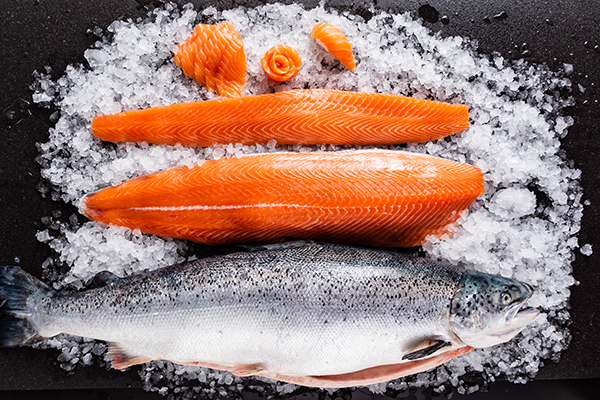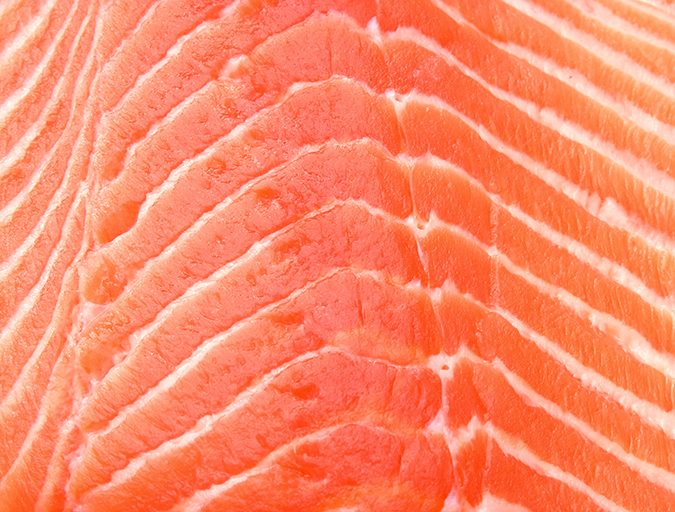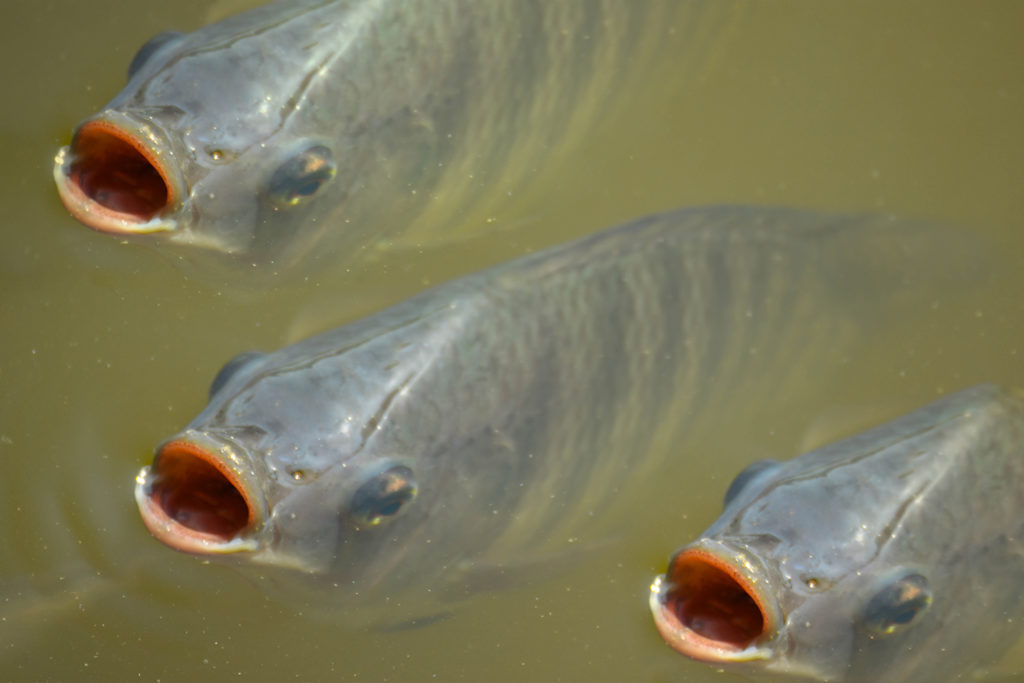Aquaterra® Advanced Omega-3 oil, produced by Nuseed, reduced melanosis and improved omega-3 content

Aquaterra® Advanced Omega-3 oil has been shown to improve the visual and nutritional quality of farmed Atlantic salmon when included in their diets.
Two separate feed trials conducted by Nofima, a research institute in Norway, confirmed that inclusion of the product resulted in improved skin and fillet cover and in enhanced omega-3 fatty acid content. Both studies were recently published in Aquaculture and each established that including Aquaterra directly correlates with greater indicators of quality. The diets have shown to reduce melanosis, the brown spots that consumers avoid when purchasing salmon.
These trials were intended to examine whether Aquaterra can provide a safe and effective source of essential fatty acids, including DHA and EPA.
NOFIMA conducted both sea trials. The first, “A dose-response study with omega-3 rich canola oil as a novel source of docosahexaenoic acid (DHA) in feed for Atlantic salmon (Salmo salar) in seawater; effects on performance, tissue fatty acid composition, and fillet quality” (Ruyter, et al. 2022), replaced escalating percentages of conventional canola oil with Aquaterra® Advanced Omega-3.
While the salmon showed equal growth and survivability on all four diets, the study’s authors concluded that increasing dietary levels of Aquaterra led to higher omega-3 content in the fillets and a significantly higher omega-3 to omega-6 fatty acid ratio than in fish fed the control diet. Improved muscle and skin color were also observed.
The second study, “Improved fillet quality in harvest-size Atlantic salmon fed high n-3 canola oil as a DHA-source” (Bjarne, et. 2022), was a full seawater life cycle feeding trial, conducted until salmon reached a harvest weight of 4.7 kg. This study validated that the results of the Ruyter study are consistent over long-term feedings in variable, commercial-type environments with larger fish.
In addition to improvements in color, the prevalence and intensity of melanosis were substantially reduced on the Aquaterra diets. The product “could be a good alternative to fish oil as a source of omega-3 fatty acids, thus supporting continued growth in production of healthy salmon, without increasing the pressure on wild fish stocks,” the study concluded.
“Salmon consumers buy with their eyes. Aquaterra Advanced Omega-3 oil supports improved fillet color and reduced melanosis, indicators of quality to seafood buyers. We developed Aquaterra to provide a new source of omega-3 oil, yet study after study illustrates that our unique oil profile is more than a marine oil complement – it is a true advancement in aquafeed nutrition,” said Benita Boettner, Nuseed Nutritional general manager.
Aquaterra® Advanced Omega-3 oil is derived from Nuseed® Omega-3 Canola. Nuseed Omega-3 Canola, the world’s first plant-based source of long-chain omega-3 fatty acids, has been developed in collaboration with Australia’s Commonwealth Scientific and Industrial Research Organisation (CSIRO) and the Grains Research and Development Corporation (GRDC).
Follow the Advocate on Twitter @GSA_Advocate
Now that you've reached the end of the article ...
… please consider supporting GSA’s mission to advance responsible seafood practices through education, advocacy and third-party assurances. The Advocate aims to document the evolution of responsible seafood practices and share the expansive knowledge of our vast network of contributors.
By becoming a Global Seafood Alliance member, you’re ensuring that all of the pre-competitive work we do through member benefits, resources and events can continue. Individual membership costs just $50 a year.
Not a GSA member? Join us.
Author
Related Posts

Intelligence
Wanted: More omega-3s. But from where?
Cargill and Australia’s Nuseed are both investing large sums of money in the development of a genetically modified canola oil rich in DHA. Meanwhile, a leading nutritionist casts doubts on the necessity of omega-3s from fish.

Aquafeeds
Fish nutrition will fuel aquaculture’s future
Dr. Monica Betancor, a lecturer at the University of Stirling, talks about the “intrinsic link” between fish nutrition and, ultimately, human health.

Aquafeeds
Biotech entrepreneurs: The need to scale up and adopt novel aquafeed ingredients is urgent
Assembled by F3, the Future of Fish Feed, biotech entrepreneurs gave updates on the scale-up and adoption processes for novel aquafeed ingredients.

Aquafeeds
A push for rapeseed as a viable aquafeed ingredient
One Germany-based company says rapeseed protein concentrate, or RPC, can help aquafeed manufacturers meet growing demand.



